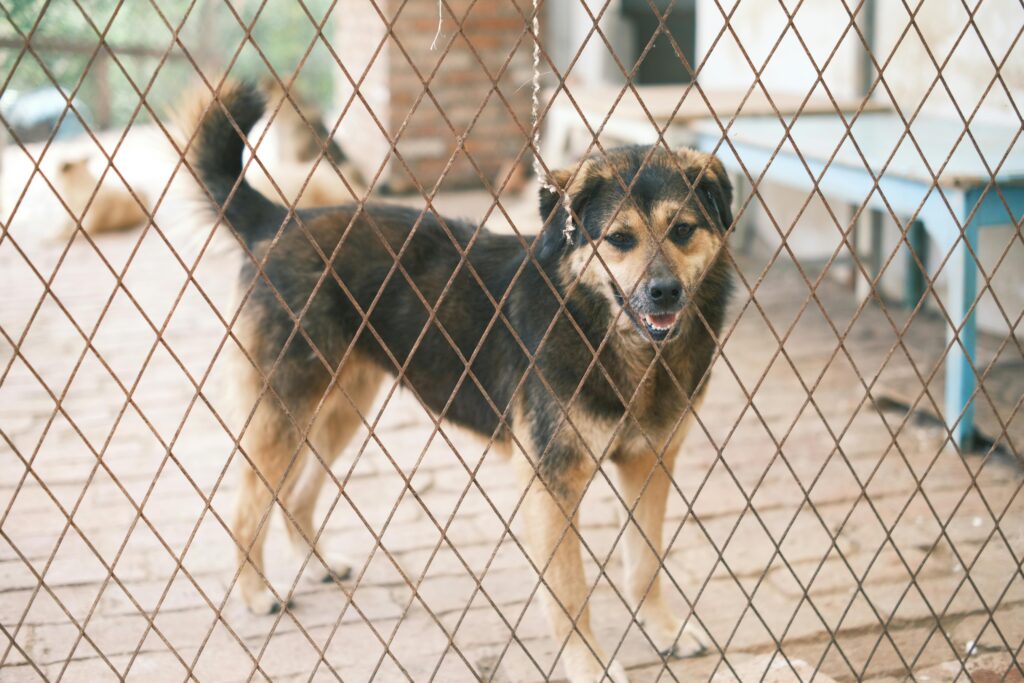Kennel cough, also known as canine infectious tracheobronchitis, is a highly contagious respiratory illness that affects dogs. It is characterized by a persistent cough that can be quite distressing for both the dog and its owner. Kennel cough is commonly seen in places where dogs are in close proximity to each other, such as boarding kennels, dog parks, and animal shelters. While it is usually not life-threatening, kennel cough can lead to complications in certain cases, especially in puppies or dogs with weakened immune systems.
Understanding Kennel Cough: What is it and How is it Spread?
Kennel cough is a respiratory infection that affects the upper respiratory tract of dogs. It is caused by a combination of viruses and bacteria, including the canine parainfluenza virus, canine adenovirus type 2, and Bordetella bronchiseptica bacteria. These pathogens can be spread through the air when an infected dog coughs or sneezes, or through direct contact with contaminated surfaces such as food bowls or toys.
Symptoms of Kennel Cough in Dogs: What to Look Out For
The most common symptom of kennel cough is a persistent dry cough that may sound like a honking noise. Other symptoms may include sneezing, nasal discharge, lethargy, loss of appetite, and fever. It is important to note that these symptoms can also be seen in other respiratory illnesses, so it is crucial to consult a veterinarian for an accurate diagnosis.
The Importance of Early Diagnosis and Treatment for Kennel Cough
Early diagnosis and treatment are crucial for managing kennel cough effectively. While the illness is usually self-limiting and resolves on its own within a few weeks, treatment can help alleviate symptoms and prevent complications. Additionally, early diagnosis allows for appropriate isolation measures to prevent the spread of the infection to other dogs.
Home Remedies for Kennel Cough: Natural Treatments for Your Dog
There are several natural remedies that can help alleviate the symptoms of kennel cough and support your dog’s recovery. Honey, for example, can soothe the throat and reduce coughing. You can give your dog a teaspoon of honey a few times a day or mix it with warm water to make a soothing drink. Steam therapy is another effective home remedy for kennel cough. You can create a steam room by running a hot shower and bringing your dog into the bathroom for 10-15 minutes, allowing them to breathe in the warm, moist air.
Medications for Kennel Cough: What Your Vet May Prescribe
In some cases, your veterinarian may prescribe medications to help manage the symptoms of kennel cough. Cough suppressants, such as hydrocodone or butorphanol, can help reduce coughing and provide relief to your dog. Antibiotics may also be prescribed if there is a bacterial component to the infection or if there is a risk of secondary bacterial infections.
Antibiotics and Kennel Cough: When They are Necessary
While antibiotics are not always necessary for kennel cough, they may be prescribed in certain cases. Antibiotics are typically used when there is a risk of secondary bacterial infections or when the dog’s immune system is compromised. It is important to follow your veterinarian’s instructions when administering antibiotics and to complete the full course of treatment to ensure that the infection is fully cleared.
Preventing Kennel Cough in Dogs: Vaccination and Other Precautions
Vaccination is one of the most effective ways to prevent kennel cough in dogs. The Bordetella vaccine, which is available as an injectable or intranasal vaccine, provides protection against the bacteria that commonly cause kennel cough. It is recommended for dogs that are at high risk of exposure, such as those that frequent boarding kennels or participate in dog shows. Other precautions to prevent kennel cough include avoiding contact with infected dogs, practicing good hygiene, and keeping your dog’s living area clean and well-ventilated.
Managing Kennel Cough in Multi-Dog Households and Kennels
If you have multiple dogs in your household or manage a kennel, it is important to take extra precautions to prevent the spread of kennel cough. Isolating the infected dog and providing separate food and water bowls, bedding, and toys can help minimize the risk of transmission. It is also important to practice good hygiene, such as washing your hands thoroughly after handling an infected dog and disinfecting surfaces regularly.
Caring for a Dog with Kennel Cough: Tips for Making Your Pet Comfortable
While kennel cough is usually a self-limiting illness, there are several things you can do to make your dog more comfortable during their recovery. Providing a warm and quiet environment can help reduce stress and promote healing. It is also important to ensure that your dog stays hydrated by offering plenty of fresh water. Soft, easily digestible food may be more appealing to a dog with a sore throat, so consider offering wet food or adding water to dry kibble.
When to Seek Emergency Care for a Dog with Kennel Cough
While kennel cough is usually not life-threatening, there are certain signs that indicate your dog may need emergency care. These include difficulty breathing, severe coughing fits, blue or pale gums, loss of consciousness, or collapse. If you notice any of these symptoms, it is important to seek veterinary care immediately.
Kennel cough is a common respiratory illness that affects dogs, particularly those in close quarters with other dogs. While it is usually not life-threatening, it can cause discomfort and distress for both the dog and its owner. Early diagnosis and treatment are crucial for managing kennel cough effectively and preventing the spread of the infection. Natural remedies and medications can help alleviate symptoms, and vaccination is an important preventive measure. By taking appropriate precautions and providing proper care, you can help your dog recover from kennel cough and prevent future infections.



